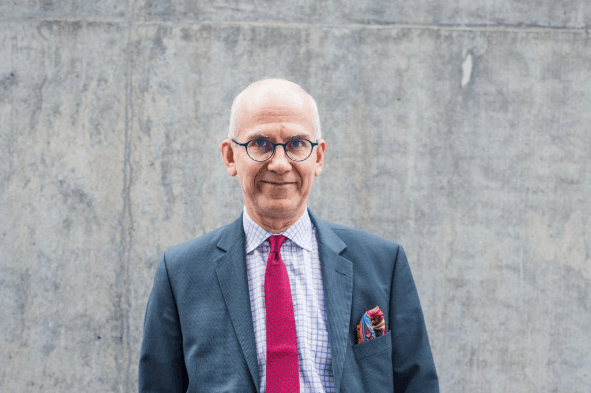From pandemic recovery to political decoupling, the conference touched upon a broad spectrum of subjects, of which six stood out.
1. Developing EU-China relationships is key
This sentiment flowed through the entire discourse but was presented more concisely by founder and director of the Peterson Institute for International Economics Dr Fred Bergsten. Setting the context for the relationship between China, the US and Europe, the professor explained that while China and the US tussle for the role of supreme economic power, the EU shouldn’t follow the US in its efforts to decouple from China.
“Functional decoupling,” as he called it, would allow the EU and China to cooperate on financial and economic matters even if there were still issues on the political front. The EU needs to continue developing its relationship with China, was his message.
2. The Chinese comeback gene
As it did with other global economies, the gradual relaxation of pandemic measures appears to make its way to China too. Too late to allow the country to meet its original 2022 target of 5.5%--HSBC chief Asia economist Frederic Neumann estimated it to reach 3 to 3.5%--the loosening of sanitary measures might not only encourage consumers to purchase more, but also improve sentiment in the financial sphere. Unlike Western economies, which might face a recession due to the Russian war in Ukraine and energy crisis, China is likely to witness a 5.2% growth for the coming year, Neumann said. “China will remain the game in town,” he concluded.
3. Invest in local partners
Chinese speakers at the event emphasised that in order to successfully enter the Chinese market, international players should find adequate local partners. “We do see the importance of having a local partner,” said Desiree Wang, managing director of JP Morgan Asset Management China. “China has so many things that need to be respected.”
A word of advice then from these speakers: don’t apply international strategies to Chinese markets if you want to attract Chinese flows.
4. The Chinese distribution landscape is changing
“We know that younger generations are more tech-savvy,” said Alfi’s , who identified that this would likely impact the role of banks in bonds distribution. In China, confirm the experts invited to the panel Bechet moderated, more millennials and Gen Z are investing and they are more likely do so through smartphone apps and online platforms than through a bank. “It’s not a bank-driven business anymore,” said David Guo, China CEO of Schroders. Tech companies in the country have joined the companies, leading banks to counteract by introducing their own digital services.
5. Secondary markets in Asia are still underdeveloped
“If you look globally, the is about 15% of the global [market],” said Frederic Azemard of TR Capital. In China, it only makes up about 3% of the entire pie. Investing on quality assets in secondary markets is a way to generate liquidity, Azemard said. The challenges though, are the different dynamics in Asian countries, the political consensus not to invest in China and the uncertainty regarding the relaxation of covid-19 restrictions in China.
6. Retail investors push for more sustainable portfolios
“We lack to understand in China among retail investors the mindset on sustainable finance issues,” highlighted Bechet. But, according to Guo, asset management has reached its 3.0 era, many investors have started to learn about sustainable investments. “For many retail investors, after ten years of evolution, sustainable investments have been associated with long-term investment and it has raised investor awareness of environmental protection and social responsibilities.” The last two years in particular have seen retail investors focus on all components of the ESG criteria.
